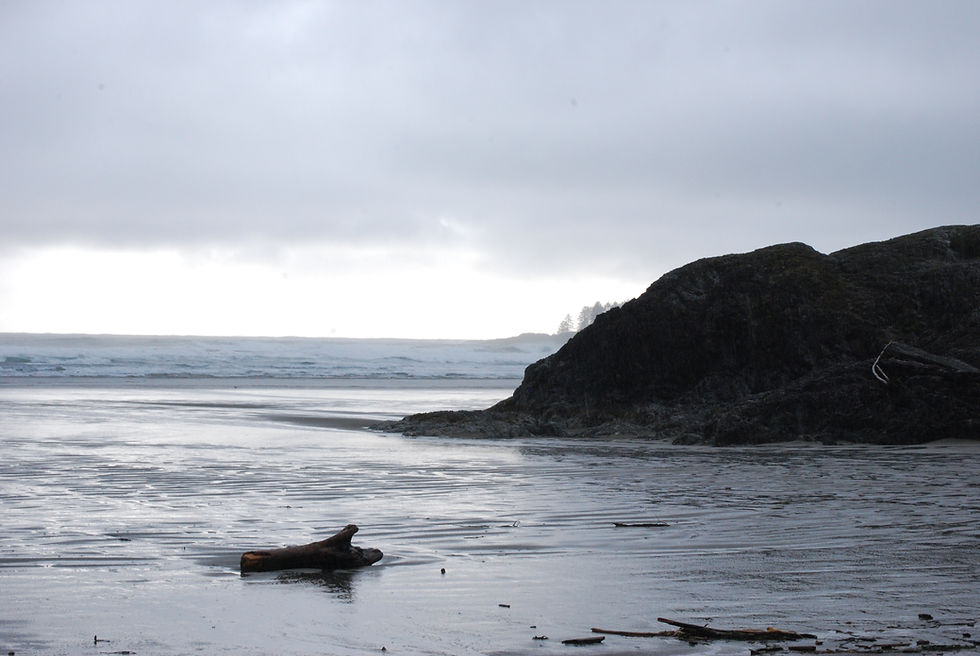
Do you matter? Do I matter? As I write this, the population of earth 7.8 Billion. When I was a kid, I remember discussions of whether the earth could hold 6 billion people. We have added roughly two billion since then and for many people, life feels the same as it did then. For others, however, the world is starkly different. Humans now represent 96% of all animal life on the planet, by weight, and it is impossible to think we haven't had some sort of impact. It is undeniable the climate is changing, but it is such an enormous, intangible problem that it is easy to pretend things are the same if you are lucky enough to live in a less affected area.
Increased rates and severity of flooding, superstorms, wildfires, droughts, and mass die-offs have affected many populations across the globe. In the Pacific Northwest, especially if you live in a city, it is easy to ignore this. Sure, the wildfire season was bad for a few years, and snowfall or rainfall increased dramatically on the south coast of British Columbia and the coasts of Washington and Oregon. However, most of us in the northern hemisphere have the resources, infrastructure, and financial means to deal with these events. In other areas, however, a superstorm can knock out most of a country for years, such as happened in Puerto Rico with Hurricane Maria. Or, a drought in the middle east can exacerbate political instability, as happened in the war in Syria.
As more and more equatorial populations are displaced due to extreme climate events, more pressure falls on less affected countries in the north to take in refugees, send aid, and attempt to be peacekeepers. Simply put, we are all affected by climate change, no matter where we live.
The logical place for my brain and emotions to go is to do all I can in my own life to decrease my carbon footprint and all other types of lasting impact on the planet. Using what I have or buying used instead of buying new, shopping local and small instead of big and cheap, eliminating meat from my diet, decreasing my water consumption through purchasing patterns, and only buying reusable and biodegradable everything are all practices I have adopted as long-term habits over the past ten years. This seems great on the surface and according to much green-oriented media it is the right solution: decrease your carbon footprint and we can save the planet.
However, once you enter this spiral of caring, you realize the job is too big for you to achieve on your own, and that your impact will be so minimal it will make no difference in the long run. Using less water won't free up fresh drinking water for people across the world living through a drought—less than 2 percent of the planet's fresh water is used as drinking water. Swapping beef for combinations of grains and beans decreases your water and carbon consumption by literal tonnes per year. However, it causes poor people in Peru who relied on quinoa to no longer be able to afford quinoa because northern demand has driven the prices up and increased exports. Buying used clothing avoids direct use of developing world water systems and unethical labour practices, but it still releases 700,000 microplastic particles into the ocean each time you wash a load of synthetic clothing, regardless of how old it is. Once you enter the spiral of caring, it is impossible to get out, and almost as impossible to keep your head above water.
So, how does one get up every day knowing that each one of us is harming the planet just by existing? The guilt is all-consuming. For some, this fatalism causes them not to act because their actions make little immediate or tangible difference to the big picture. For others, they dedicate their lives to making up for the shortcomings of this first group. For me, like a child disappointing their mother, I have promised to try, and have chosen to be satisfied with constant progress. All I can do is my best, and I am improving every day.
Though it will come down to scientific innovation and political will (seriously, please vote), to help the planet steer towards a more sustainable course, doing nothing while we wait for that time is not good enough. If a child falls and breaks their leg, you call the ambulance, of course, but once the ambulance has been called, you don't leave the child lying on the ground to console themself. You sit with the child, hug them, stroke their head, and tell them everything will be okay soon. This means the child will have calmed down by the time the paramedics arrive and they can do their jobs properly. Changing daily habits, bit by bit, decreases the giant hill science and politics will have to climb once a solution is ready. Changing your own habits sets an example for others. Small habit changes alter attitudes over time. Attitude changes lead to evolved voting patterns and greater support for tough new initiatives. Attitude changes also create a more open-minded public opinion to receive new scientific results, lessening the likelihood of tough-to-swallow study results being dismissed as alarmist or biased and subsequently ignored.
Even once attitudes have changed enough to let more solutions in, this will not happen in one day. As there should be, there will be constant calls for greater change. However, it is important to not let interim guilt lead to inaction, and not let a desire for greater change lead to a discounting of progress already made. Keep adopting incremental yet permanent habit changes and let go of the debilitating guilt by knowing these habits, though they may not reverse climate change, are softening the landing for progressive science and politics that will eventually bring us the solutions we need.

Comments